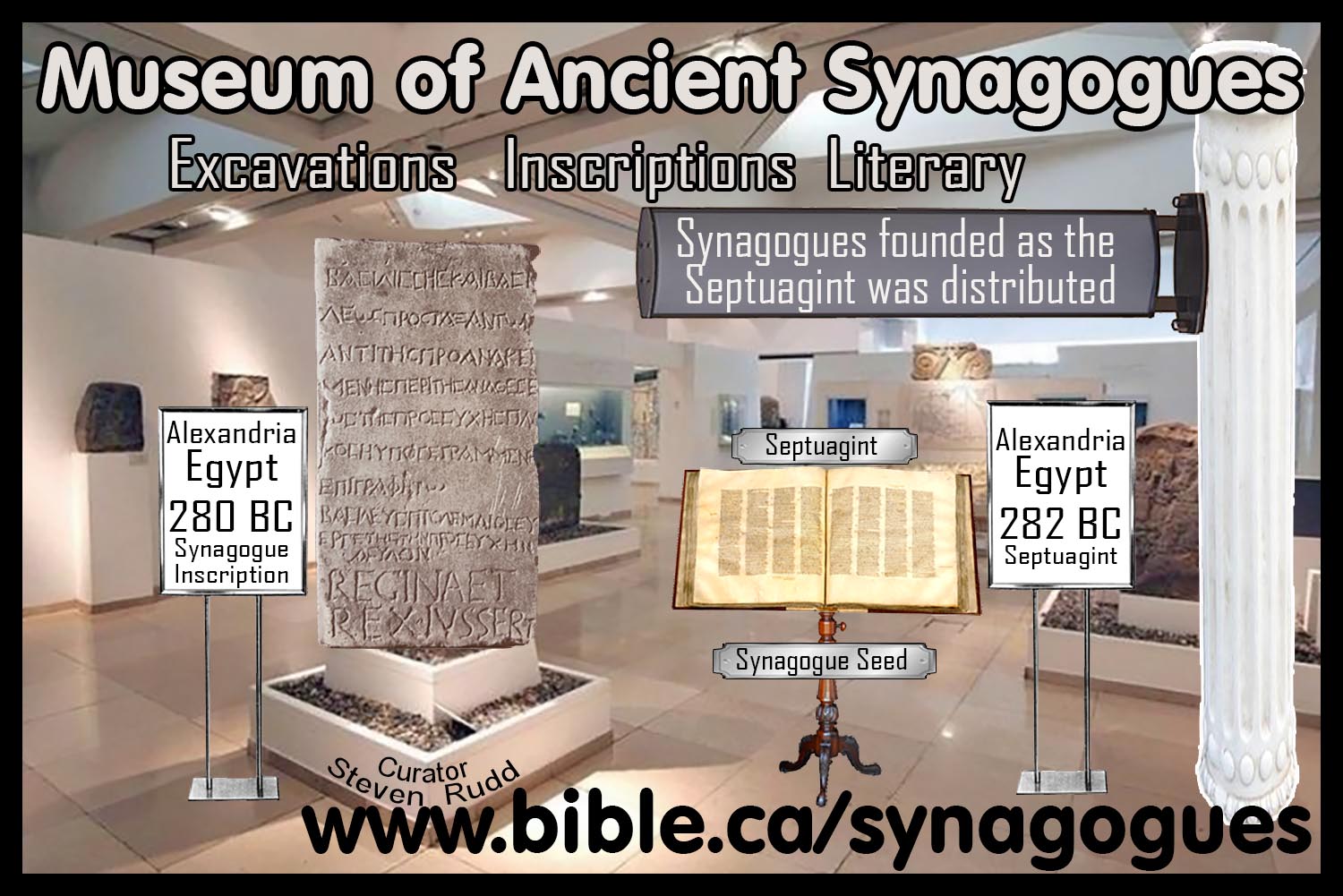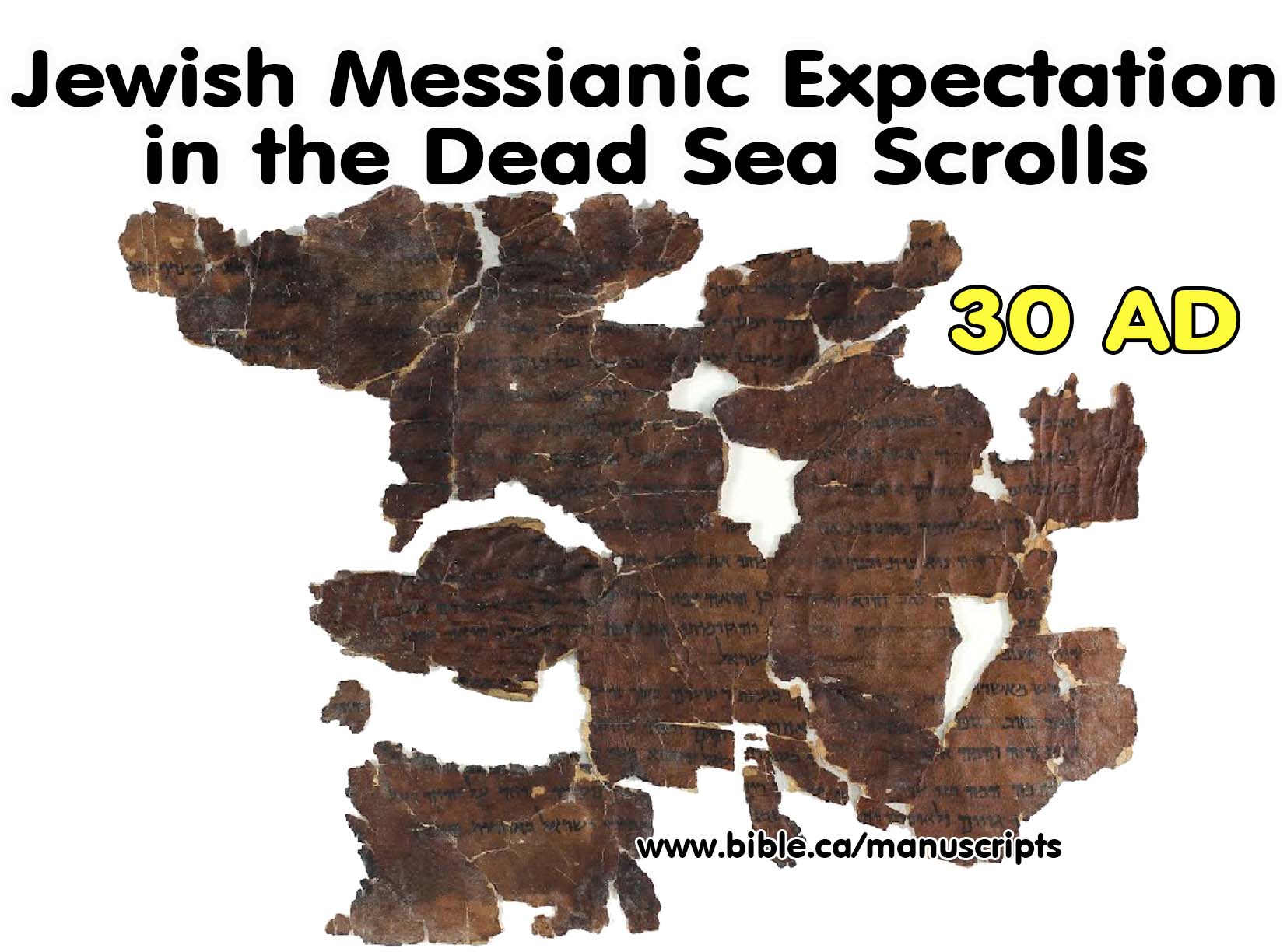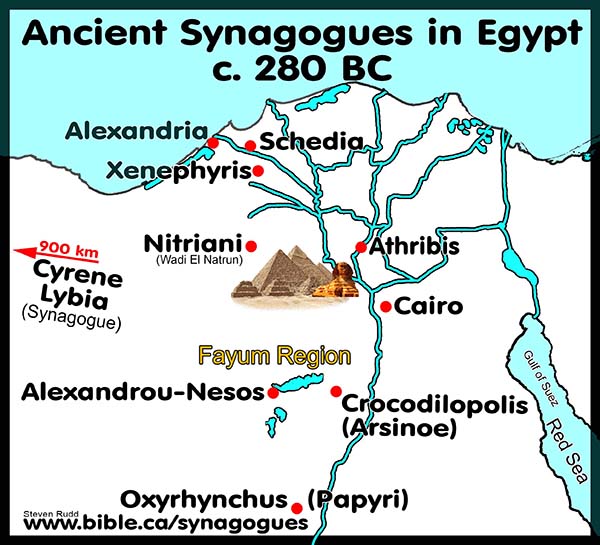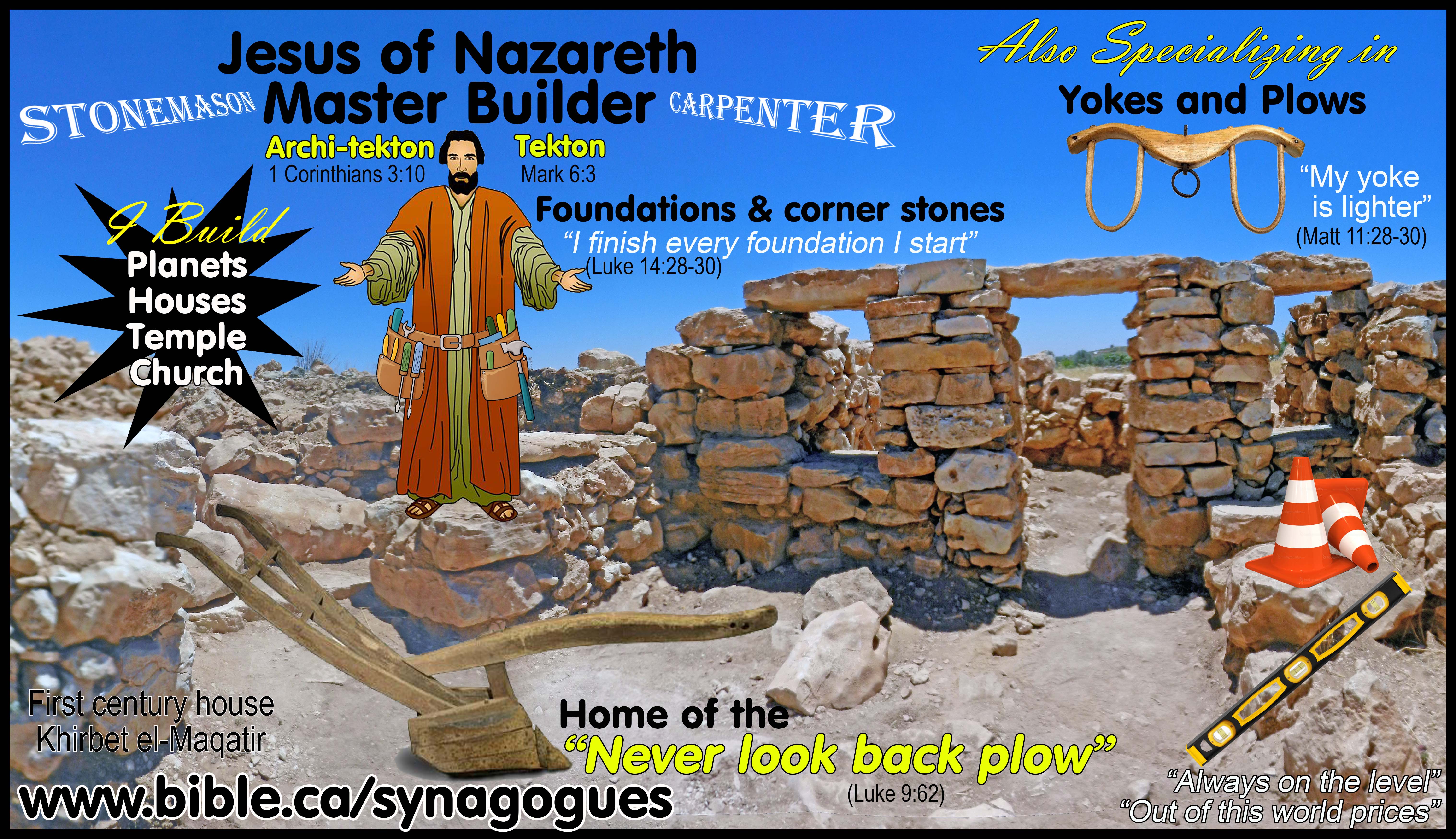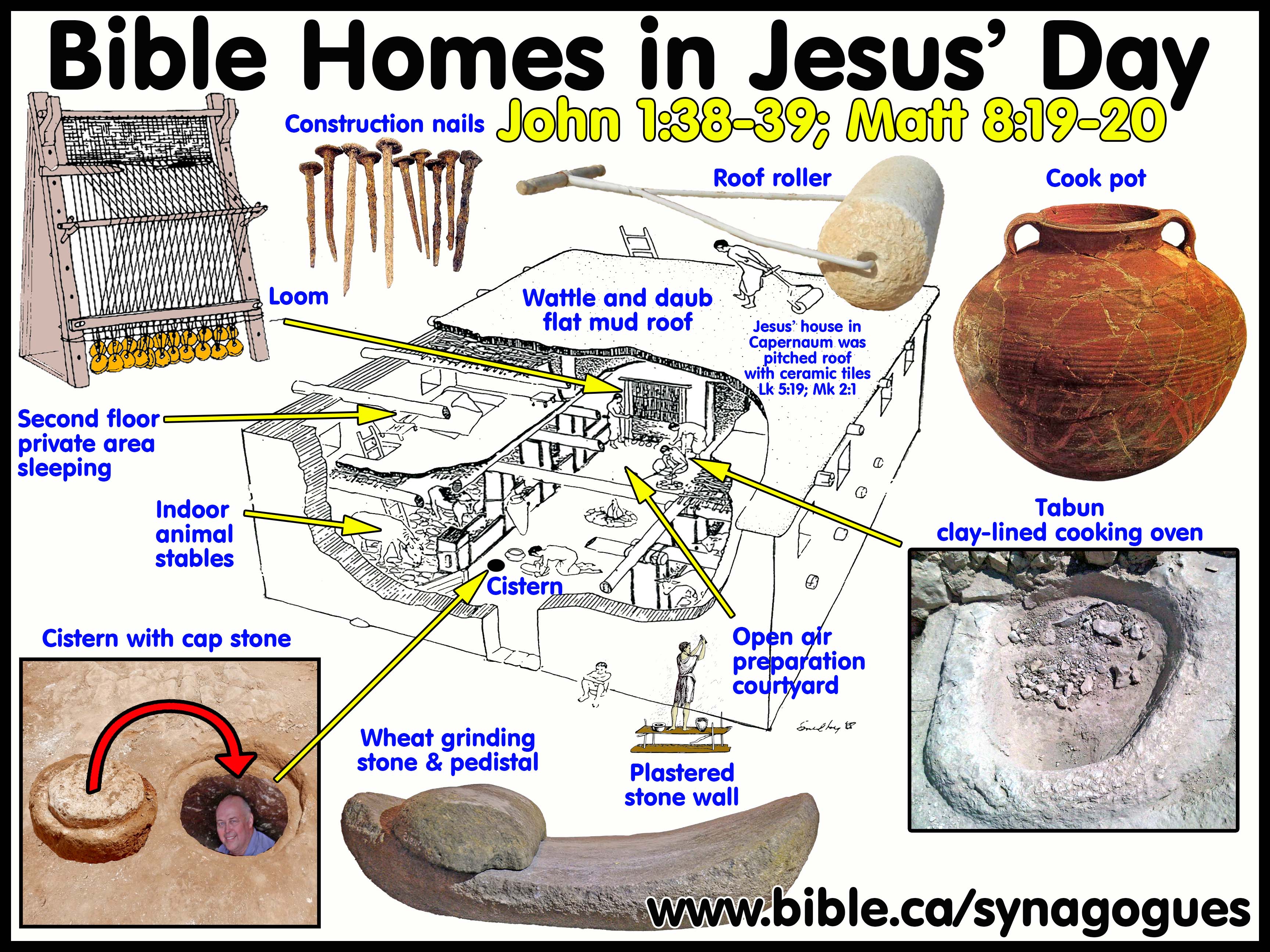|
Public Bible Readings and Sermon Topics In Synagogues: Messianic, historical, character How Christians used the Tanakh to convert Jews First Century Synagogues and churches |
“On this Rock, I will build My church”
Ancient Synagogue Worship and the Church
Synagogue worship was the prototype for Christian Church.
|
I. BIBLE READINGS IN SYNAGOGUES |
A. Public Bible reading, study, teaching:
1. As we have seen elsewhere in this book, Synagogues began in 280 BC at Alexandria, as a direct result of Antiochus II translating the Hebrew scriptures into Greek (Septuagint).
a. The spiritually starved Greek speaking Jews were experiencing a famine for the word of God because they could not read Hebrew.
b. The genesis of synagogues throughout the world followed the distribution of the LXX.
c. As soon at the Septuagint arrived in a distant population of diaspora Jews, they immediately gathered to read and pray.
d. The first name used to designate a synagogue was the Greek: “House of Prayer”.
2. Public readings in the town:
a. In 440 BC, Nehemiah conducted Public reading of scripture in the city gate, proving that synagogues did not exist yet.
b. “[I:1 A] [73d], Said R. Yohanan, “[The rule of M. 3:1A] represents the view of R. Menahem b. R. Yosé. For R. Menahem b. R. Yosé said, ‘The street of a town is subject to sanctification. For they take a scroll of the Torah out into the street and read it publicly there.’” (Jerusalem Talmud, y. Meg. 3:1, I.1.A)
3. Public reading of scripture was a centrally important function of synagogues:
a. "For Moses from ancient generations has in every city those who preach him, since he is read in the synagogues every Sabbath." (Acts 15:21)
b. The Theodotos inscription in city of David Jerusalem dates to about 18 BC and highlights the importance of Torah reading in synagogues: “Of singular importance in this inscription is the listing of three synagogue activities: reading the Torah, teaching the commandments, and providing rooms and water for itinerant pilgrims. Whether the hostel services were intended only for Jews from Rome in the context of a Landsmannschaft or whether they were available to others as well is unknown.” (The Ancient Synagogue, Lee Levine, p58, 1999 AD)
c. Bible reading: “[In Alexandria] Now these laws they are taught at other times, indeed, but most especially on the seventh day, for the seventh day is accounted sacred, on which they abstain from all other employments, and frequent the sacred places which are called synagogues [house of prayer], and there they sit according to their age in classes, the younger sitting under the elder, and listening with eager attention in becoming order. (82) Then one, indeed, takes up the holy volume and reads it, and another of the men of the greatest experience comes forward and explains what is not very intelligible, for a great many precepts are delivered in enigmatical modes of expression, and allegorically, as the old fashion was; (83) and thus the people are taught piety, and holiness, and justice, and economy, and the science of regulating the state, and the knowledge of such things as are naturally good, or bad, or indifferent, and to choose what is right and to avoid what is wrong, using a threefold variety of definitions, and rules, and criteria, namely, the love of God, and the love of virtue, and the love of mankind. (84) Accordingly, the sacred volumes present an infinite number of instances of the disposition devoted to the love of God, and of a continued and uninterrupted purity throughout the whole of life, of a careful avoidance of oaths and of falsehood, and of a strict adherence to the principle of looking on the Deity as the cause of everything which is good and of nothing which is evil. They also furnish us with many proofs of a love of virtue, such as abstinence from all covetousness of money, from ambition, from indulgence in pleasures, temperance, endurance, and also moderation, simplicity, good temper, the absence of pride, obedience to the laws, steadiness, and everything of that kind; and, lastly, they bring forward as proofs of the love of mankind, goodwill, equality beyond all power of description, and fellowship, about which it is not unreasonable to say a few words.” (Philo, Good Person 81–84)
d. “Accordingly, on the seventh day there are spread before the people in every city innumerable lessons of prudence, and temperance, and courage, and justice, and all other virtues; during the giving of which the common people sit down, keeping silence and pricking up their ears, with all possible attention, from their thirst for wholesome instruction; but some of those who are very learned explain to them what is of great importance and use, lessons by which the whole of their lives may be improved. (Philo, The Special Laws, II 62)
4. Jesus often participated in public reading of the law and preached:
a. "They went into Capernaum; and immediately on the Sabbath He entered the synagogue and began to teach. They were amazed at His teaching; for He was teaching them as one having authority, and not as the scribes." (Mark 1:21–22)
b. "Jesus was going throughout all Galilee, teaching in their synagogues and proclaiming the gospel of the kingdom, and healing every kind of disease and every kind of sickness among the people." (Matthew 4:23)
c. "And He went into their synagogues throughout all Galilee, preaching and casting out the demons." (Mark 1:39)
d. "And He came to Nazareth, where He had been brought up; and as was His custom, He entered the synagogue on the Sabbath, and stood up to read. And the book of the prophet Isaiah was handed to Him. And He opened the book and found the place where it was written, “The Spirit of the Lord is upon Me, Because He anointed Me to preach the gospel to the poor. He has sent Me to proclaim release to the captives, And recovery of sight to the blind, To set free those who are oppressed, To proclaim the favorable year of the Lord.” And He closed the book, gave it back to the attendant and sat down; and the eyes of all in the synagogue were fixed on Him. And He began to say to them, “Today this Scripture has been fulfilled in your hearing.” And all were speaking well of Him, and wondering at the gracious words which were falling from His lips; and they were saying, “Is this not Joseph’s son?”" (Luke 4:16–22)
5. In depth bible study was part of the weekly Sabbath synagogue service:
a. “nor do we conceal those injunctions of ours by which we govern our lives, they being memorials of piety, and of a friendly conversation among men. And the seventh day we set apart from labor; it is dedicated to the learning of our customs and laws, we thinking it proper to reflect on them as well as on any [good] thing else, in order to our avoiding of sin.” (Josephus, Antiquities 16.43)
B. The church directly adopted the pattern of public weekly readings on the Lord’s Day while in church: Sunday
1. "Until I come, give attention to the public reading of Scripture, to exhortation and teaching." (1 Timothy 4:13)
2. When the Jewish converts began to worship as Christians, they continued with their synagogue tradition and brought this tradition into the Christian church
|
II. SERMON TOPICS IN SYNAGOGUES |
A. SERMON TOPICS IN SYNAGOGUES: Life application lessons about historical ancestors and events:
1. Philo speaks of discussing historical events:
a. “And would you still sit down in your synagogues, collecting your ordinary assemblies, and reading your sacred volumes in security, and explaining whatever is not quite clear, and devoting all your time and leisure with long discussions to the philosophy of your ancestors?” (Philo, On Dreams 2.18)
2. These amazing two quotes from Philo sounds exactly what kind of sermons topics you would expect to find in a Christian church:
a. “Accordingly, on the seventh day there are spread before the people in every city innumerable lessons of prudence, and temperance, and courage, and justice, and all other virtues; during the giving of which the common people sit down, keeping silence and pricking up their ears, with all possible attention, from their thirst for wholesome instruction; but some of those who are very learned explain to them what is of great importance and use, lessons by which the whole of their lives may be improved. (Philo, The Special Laws, II 62)
b. “[In Alexandria] Now these laws they are taught at other times, indeed, but most especially on the seventh day, for the seventh day is accounted sacred, on which they abstain from all other employments, and frequent the sacred places which are called synagogues [house of prayer], and there they sit according to their age in classes, the younger sitting under the elder, and listening with eager attention in becoming order. (82) Then one, indeed, takes up the holy volume and reads it, and another of the men of the greatest experience comes forward and explains what is not very intelligible, for a great many precepts are delivered in enigmatical modes of expression, and allegorically, as the old fashion was; (83) and thus the people are taught piety, and holiness, and justice, and economy, and the science of regulating the state, and the knowledge of such things as are naturally good, or bad, or indifferent, and to choose what is right and to avoid what is wrong, using a threefold variety of definitions, and rules, and criteria, namely, the love of God, and the love of virtue, and the love of mankind. (84) Accordingly, the sacred volumes present an infinite number of instances of the disposition devoted to the love of God, and of a continued and uninterrupted purity throughout the whole of life, of a careful avoidance of oaths and of falsehood, and of a strict adherence to the principle of looking on the Deity as the cause of everything which is good and of nothing which is evil. They also furnish us with many proofs of a love of virtue, such as abstinence from all covetousness of money, from ambition, from indulgence in pleasures, temperance, endurance, and also moderation, simplicity, good temper, the absence of pride, obedience to the laws, steadiness, and everything of that kind; and, lastly, they bring forward as proofs of the love of mankind, goodwill, equality beyond all power of description, and fellowship, about which it is not unreasonable to say a few words.” (Philo, Good Person 81–84)
3. The Mishnah: topics in synagogues are based upon God’s creating power in six 24-hour day creation and the garden of Eden:
a. “And Israelites who belong to that watch gather together in their towns [ie. In the synagogues in each town is generally accepted] and study the story of the works of creation.” (Mishnah, m. Ta'an. 4:2 F)
4. We also have solid evidence that spiritual topics of discussion in first century Synagogues revolved around historical Bible characters and past Bible events.
a. Favorite topics would be Abraham, the Exodus, Conquest, Saul, David, Solomon, Babylonian captivity, Daniel etc.
b. This is known as the ancient “Rabbinical SYNAGOGUE PREACHING Style” of preaching in synagogues.
5. The best example of this “Rabbinical preaching Style” are Stephen’s “historical record sermon”
a. In Stephen’s sermons, he proves the rejection of Jesus as Messiah followed a long historical pattern of Jews rejecting God’s will.
b. Indeed, the truth of Stephen’s historical chronicle was validated when his Jewish listeners KILLED HIM by stoning.
c. Apostle Paul, who wrote half the New testament, was present and holding the “witness cloak” authorizing the stoning of Stephen.
6. Apostle Paul used first century “Rabbinical preaching Style”:
a. He was, after all a Pharisee who grew up working, preaching and worshipping in synagogues.
b. Paul’s “modus operandus” in the book of Acts was EXACTLY how a Jew would be accustomed to preach in the Synagogue.
7. Apollos used first century “Rabbinical preaching Style”:
a. Like Paul He would proof text in Old Testament prophecy about the Messiah in order to prove Jesus was the Christ.
8. Sermons in the first century church would follow this identical pattern of historical survey, except now it was used as a witness that Jesus was the Christ.
B. Sermon topics used by Peter, Stephen, Paul and Apollos:
1. Peter used the exact same Rabbinic synagogue preaching style in quoting messianic prophecy from the Tanahk:
a. Peter’s first sermon 33 AD: "But Peter, taking his stand with the eleven, raised his voice and declared to them: “Men of Judea and all you who live in Jerusalem, let this be known to you and give heed to my words. “For these men are not drunk, as you suppose, for it is only the third hour of the day; but this is what was spoken of through the prophet Joel: ‘AND IT SHALL BE IN THE LAST DAYS,’ God says, ‘THAT I WILL POUR FORTH OF MY SPIRIT ON ALL MANKIND; AND YOUR SONS AND YOUR DAUGHTERS SHALL PROPHESY, AND YOUR YOUNG MEN SHALL SEE VISIONS, AND YOUR OLD MEN SHALL DREAM DREAMS; EVEN ON MY BONDSLAVES, BOTH MEN AND WOMEN, I WILL IN THOSE DAYS POUR FORTH OF MY SPIRIT And they shall prophesy. ‘AND I WILL GRANT WONDERS IN THE SKY ABOVE AND SIGNS ON THE EARTH BELOW, BLOOD, AND FIRE, AND VAPOR OF SMOKE. ‘THE SUN WILL BE TURNED INTO DARKNESS AND THE MOON INTO BLOOD, BEFORE THE GREAT AND GLORIOUS DAY OF THE LORD SHALL COME. ‘AND IT SHALL BE THAT EVERYONE WHO CALLS ON THE NAME OF THE LORD WILL BE SAVED.’ “Men of Israel, listen to these words: Jesus the Nazarene, a man attested to you by God with miracles and wonders and signs which God performed through Him in your midst, just as you yourselves know— this Man, delivered over by the predetermined plan and foreknowledge of God, you nailed to a cross by the hands of godless men and put Him to death. “But God raised Him up again, putting an end to the agony of death, since it was impossible for Him to be held in its power. “For David says of Him, ‘I SAW THE LORD ALWAYS IN MY PRESENCE; FOR HE IS AT MY RIGHT HAND, SO THAT I WILL NOT BE SHAKEN. ‘THEREFORE MY HEART WAS GLAD AND MY TONGUE EXULTED; MOREOVER MY FLESH ALSO WILL LIVE IN HOPE; BECAUSE YOU WILL NOT ABANDON MY SOUL TO HADES, NOR ALLOW YOUR HOLY ONE TO UNDERGO DECAY. ‘YOU HAVE MADE KNOWN TO ME THE WAYS OF LIFE; YOU WILL MAKE ME FULL OF GLADNESS WITH YOUR PRESENCE.’ “Brethren, I may confidently say to you regarding the patriarch David that he both died and was buried, and his tomb is with us to this day. “And so, because he was a prophet and knew that GOD HAD SWORN TO HIM WITH AN OATH TO SEAT one OF HIS DESCENDANTS ON HIS THRONE, he looked ahead and spoke of the resurrection of the Christ, that HE WAS NEITHER ABANDONED TO HADES, NOR DID His flesh SUFFER DECAY. “This Jesus God raised up again, to which we are all witnesses. “Therefore having been exalted to the right hand of God, and having received from the Father the promise of the Holy Spirit, He has poured forth this which you both see and hear. “For it was not David who ascended into heaven, but he himself says: ‘THE LORD SAID TO MY LORD, “SIT AT MY RIGHT HAND, UNTIL I MAKE YOUR ENEMIES A FOOTSTOOL FOR YOUR FEET.” ’ “Therefore let all the house of Israel know for certain that God has made Him both Lord and Christ—this Jesus whom you crucified.”" (Acts 2:14–36)
b. Peter’s second sermon 33 AD: "“And now, brethren, I know that you acted in ignorance, just as your rulers did also. “But the things which God announced beforehand by the mouth of all the prophets, that His Christ would suffer, He has thus fulfilled. “Therefore repent and return, so that your sins may be wiped away, in order that times of refreshing may come from the presence of the Lord; and that He may send Jesus, the Christ appointed for you, whom heaven must receive until the period of restoration of all things about which God spoke by the mouth of His holy prophets from ancient time. “Moses said, ‘The Lord God will raise up for you a prophet like me from your brethren; to Him you shall give heed to everything He says to you. ‘And it will be that every soul that does not heed that prophet shall be utterly destroyed from among the people.’ “And likewise, all the prophets who have spoken, from Samuel and his successors onward, also announced these days. “It is you who are the sons of the prophets and of the covenant which God made with your fathers, saying to Abraham, ‘And in your seed all the families of the earth shall be blessed.’ “For you first, God raised up His Servant and sent Him to bless you by turning every one of you from your wicked ways.”" (Acts 3:17–26)
2. Stephen followed the Rabbinical preaching style:
a. "And Stephen, full of grace and power, was performing great wonders and signs among the people. But some men from what was called the Synagogue of the Freedmen, including both Cyrenians and Alexandrians, and some from Cilicia and Asia, rose up and argued with Stephen. But they were unable to cope with the wisdom and the Spirit with which he was speaking. Then they secretly induced men to say, “We have heard him speak blasphemous words against Moses and against God.” And they stirred up the people, the elders and the scribes, and they came up to him and dragged him away and brought him before the Council. They put forward false witnesses who said, “This man incessantly speaks against this holy place and the Law; for we have heard him say that this Nazarene, Jesus, will destroy this place and alter the customs which Moses handed down to us.” And fixing their gaze on him, all who were sitting in the Council saw his face like the face of an angel. The high priest said, “Are these things so?” And he said, “Hear me, brethren and fathers! The God of glory appeared to our father Abraham when he was in Mesopotamia, before he lived in Haran, and said to him, ‘Leave your country and your relatives, and come into the land that I will show you.’" (Acts 6:8–7:3)
3. Paul followed the Rabbinical synagogue preaching style with Felix:
a. "But as he was discussing righteousness, self-control and the judgment to come, Felix became frightened and said, “Go away for the present, and when I find time I will summon you.”" (Acts 24:25)
b. Notice the topic is self accountability of personal holiness, personal restraint from sin and how each will be judged for his actions.
4. Paul followed the Rabbinical preaching style with Jews: by quoting Deut 18:18
a. "whom heaven must receive until the period of restoration of all things about which God spoke by the mouth of His holy prophets from ancient time. “Moses said, ‘The Lord God will raise up for you a prophet like me from your brethren; to Him you shall give heed to everything He says to you. ‘And it will be that every soul that does not heed that prophet shall be utterly destroyed from among the people.’ “And likewise, all the prophets who have spoken, from Samuel and his successors onward, also announced these days. “It is you who are the sons of the prophets and of the covenant which God made with your fathers, saying to Abraham, ‘And in your seed all the families of the earth shall be blessed.’ “For you first, God raised up His Servant and sent Him to bless you by turning every one of you from your wicked ways.”" (Acts 3:21–26)
5. Paul followed the Rabbinical preaching style with Jews:
a. "But going on from Perga, they arrived at Pisidian Antioch, and on the Sabbath day they went into the synagogue and sat down. After the reading of the Law and the Prophets the synagogue officials sent to them, saying, “Brethren, if you have any word of exhortation for the people, say it.” Paul stood up, and motioning with his hand said, “Men of Israel, and you who fear God, listen: “The God of this people Israel chose our fathers and made the people great during their stay in the land of Egypt, and with an uplifted arm He led them out from it." (Acts 13:14–17)
6. Paul followed the Rabbinical preaching style with Gentiles:
a. "So Paul stood in the midst of the Areopagus and said, “Men of Athens, I observe that you are very religious in all respects. “For while I was passing through and examining the objects of your worship, I also found an altar with this inscription, ‘TO AN UNKNOWN GOD.’ Therefore what you worship in ignorance, this I proclaim to you. “The God who made the world and all things in it, since He is Lord of heaven and earth, does not dwell in temples made with hands; nor is He served by human hands, as though He needed anything, since He Himself gives to all people life and breath and all things; and He made from one man every nation of mankind to live on all the face of the earth, having determined their appointed times and the boundaries of their habitation, that they would seek God, if perhaps they might grope for Him and find Him, though He is not far from each one of us; for in Him we live and move and exist, as even some of your own poets have said, ‘For we also are His children.’ “Being then the children of God, we ought not to think that the Divine Nature is like gold or silver or stone, an image formed by the art and thought of man." (Acts 17:22–29)
7. Apollos used the Rabbinical preaching style:
a. "Now a Jew named Apollos, an Alexandrian by birth, an eloquent man, came to Ephesus; and he was mighty in the Scriptures. This man had been instructed in the way of the Lord; and being fervent in spirit, he was speaking and teaching accurately the things concerning Jesus, being acquainted only with the baptism of John; and he began to speak out boldly in the synagogue. … for he powerfully refuted the Jews in public, demonstrating by the Scriptures that Jesus was the Christ." (Acts 18:24–28)
C. Application to the first century Christian church:
1. The same basic Rabbinical preaching style the Jews used in their synagogues before their conversion to faith in Jesus as the risen Messiah, would continue after they Believed, repented, confessed Jesus and were immersed in the Synagogue Mikveh for the remission of their sins.
a. When preaching to Gentiles, Paul would redirect their faith to the one true God as a starting point without the “messianic proof texting” he did when preaching to Jews. Evidences and proof that the Bible is historically accurate, including the contribution archeology has made to validating the historical accuracy of the Bible.
b. When preaching to Jews, keep in mind that, unlike Gentiles, they already accept the Old Testament as scripture. Paul would build on their faith and show Jesus is the messiah of prophecy like Deut 18:18.
2. For us today, we have this powerful example in converting the lost souls destined for eternal hell.
D. Evangelistic Approach for lost Jews to become believers in their Messiah Jesus of Nazareth (the branch):
1. Encourage Jews to read the Gospels: A NEW TESTAMENT IN THE HANDS OF A NON-CHRISTIAN JEW IS A SOON TO BE JEWISH CHRISTIAN.
a. The author knows from first hand experience, that Jews ARE AFRAID OR FORBIDDEN TO READ THE NEW TESTAMENT.
b. Jews today are a kind of “information control cult” Just like Jehovah’s Witnesses who are forbidden from reading NON-WATCHER materials. Jew, likewise are not permitted to read (or are VERY STRONGLY DISCOURAGED) the New Testament.
c. While Jews today are not forbidden from reading the New Testament, for some reason they exhibit strong negative reactions to suggestions they should read the book that has converted more Jews into Christians than any other book in history.
2. THE TANAKH IS A CHRISTIAN MAKER
a. The Tanakh is the most powerful tool for Jewish conversion to Christianity.
b. Christians have a compelling case to convince Jews that Jesus is the messiah USING JUST THE TANAKH ALONE.
c. "‘I will raise up a prophet from among their countrymen like you, and I will put My words in his mouth, and he shall speak to them all that I command him. ‘It shall come about that whoever will not listen to My words which he shall speak in My name, I Myself will require it of him." (Deuteronomy 18:18–19)
d. Moses clearly said that when the Messiah comes, that he would relinquish his authority to the Messiah and commanded all his followers to obey Christ in all things.
3. Isaiah 53, for example so clearly prophecies Jesus of Nazareth as Messiah, they have invented wild and bizarre interpretations:
a. FALSE JEWISH MODERN INTERPRETATION: Gentile kings of nations are speaking the narrative and ask: Who has believed our message?
i. Nations of the world are shocked
ii. Why did the Jews suffer the gentile kings ask
iii. Paraphrase: “We gentiles nations wrongly assumed that the reason the Jews suffered is because they rejected the nations, but now we know they always had the truth”
iv. Instead of applying to the Babylonian Captivity, they skip forward 2600 years to the innocent suffering of the Jews, 20th century bombs in Jerusalem, 19th century holocaust.
v. By the suffering of the Jews, the Gentiles nations were healed.
b. FALSE JEWISH MODERN INTERPRETATION on Isa 53:8: "By oppression and judgment He was taken away; And as for His generation, who considered That He was cut off out of the land of the living For the transgression of my people, to whom the stroke was due?" (Isaiah 53:8)
i. The nations of the world are speaking in Isa 53:8
ii. By the transgression and sin of the gentile nations, the innocent Jews were cut off from the land.
iii. The gentile nations deserved to be punished, not the Jews.
c. This false Jewish modern interpretation is wild and historically disconnected from reality.
i. The Assyrian and Babylonian captivities of the Jews are two perfect examples that contradict the “national suffering” interpretation because in both cases, THE JEWS DESERVED EXILE, DEATH AND DESTRUCTION for rank idolatry.
ii. Both Isaiah and Jeremiah make it clear that the Jews suffered by being cast into foreign countries BECAUSE of the NATIONAL JEWISH SIN OF IDOLATRY.
d. But of course the truth is clear: Jesus, the innocent individual suffered and died for his wicked sinful Jewish brothers.
e. Only though the cross can the Jews be healed.
4. Messianic Expectation in the First century as witnessed in the Dead Sea Scrolls:
a. Ancient papyrus documents found at Qum’ran quote Deut 18:18 in expectation of the Messiah.
b. The honest, spiritual “cream of the first century crop” converted to Christianity because of the crucifixion and resurrection of Christ.
c. Large numbers of Jews and Gentiles converted to Christianity in the first century because of the supernatural miracles of healings that were taking place at the hands of the Apostles of Jesus.
d.
See full outline on FIRST
CENTURY JEWISH MESSIANIC EXPECTATION
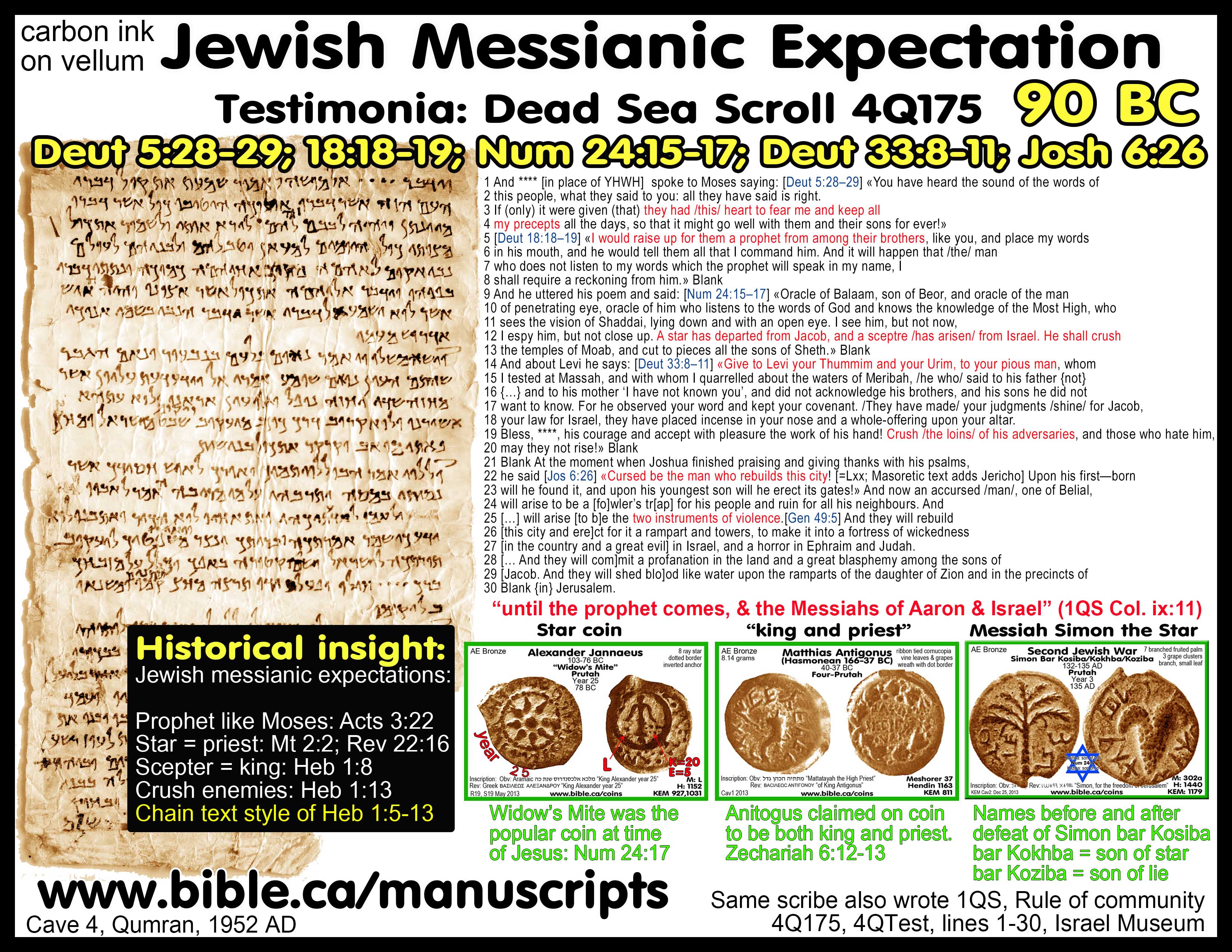
By Steve Rudd 2017: Contact the author for comments, input or corrections
|
Jesus your messiah is waiting for you to come home! |
|
|
Why not worship with a first century New Testament church near you, that has the same look and feel as the Jewish Synagogue in your own home town. As a Jew, you will find the transition as easy today as it was for the tens of thousands of your forefathers living in Jerusalem 2000 years ago when they believed in Jesus the Nazarene (the branch) as their messiah. It’s time to come home! |
|
By Steve Rudd: Contact the author for comments, input or corrections.
Go to: Main Ancient Synagogue Start Page


